WELLBEING ECONOMY: Success in a World Without Growth (Macmillan, 2017)
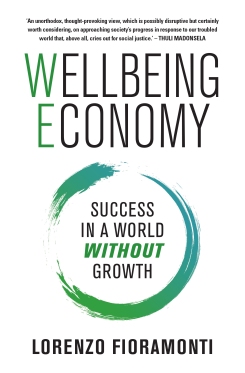
‘An unorthodox, thought-provoking view, which is possibly disruptive but certainly worth considering, on approaching society’s progress in response to our troubled world that, above all, cries out for social justice.’ – THULI MADONSELA
Economic growth is a constant mantra of politicians, economists and the media. Few understand what it is, but they love and follow it blindly. The reality is that since the global financial crisis, growth has vanished in the more industrialised economies and in the so-called developing countries. Politicians may be panicking, but is this really a bad thing?
Using real-life examples and innovative research, acclaimed political economist Lorenzo Fioramonti lays bare society’s perverse obsession with economic growth by showing its many flaws, paradoxes and inconsistencies. He argues that the pursuit of growth often results in more losses than gains and in damage, inequalities and conflicts.
By breaking free from the growth mantra, we can build a better society that puts the wellbeing of all at its centre. A wellbeing economy would have tremendous impact on everything we do, boosting small businesses and empowering citizens as the collective leaders of tomorrow.
Wellbeing Economy is a manifesto for radical change in South Africa and beyond.
Buy the book at any store in South Africa or click here
THE WORLD AFTER GDP: Economics, Politics and International Relations in the Post-Growth Era (Polity Books, 2017)
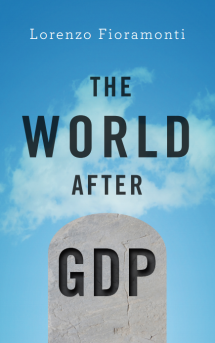
‘An original, comprehensive and compelling analysis of the problems with GDP and how to make the world better without it.’
Robert Costanza, The Australian National University
‘Fioramonti has provided a well-written and persuasive explanation of how to change the world by moving beyond the current narrow focus on GDP.’
Herman Daly, founder of Ecological Economics and Emeritus Professor, University of Maryland
‘What governments don’t track today is often far more important than what they do because what we measure changes how we behave − and how we think. And changing what we think is essential if we are to build a more sustainable economic system. Read this fascinating and well-written book − and change the way you think!’
Graeme Maxton, secretary general of the Club of Rome and bestselling author of The End of Progress
GDP is much more than a simple statistic. It has become the overarching benchmark of success and a powerful ordering principle at the heart of the global economy. But the convergence of major economic, social and environmental crises has exposed the flaws of our economic system which values GDP above all else as a measure of prosperity and growth.
In this provocative and inspiring new book, political economist Lorenzo Fioramonti sets out his vision of a world after GDP. Focusing on pioneering research on alternative metrics of progress, governance innovation and institutional change, he makes a compelling case for the profound and positive transformations that could be achieved through a post-GDP system of development. From a new role for small businesses, households and civil society to a radical evolution of democracy and international relations, Fioramonti sets out a combination of top-down reforms and bottom-up pressures whose impact, he argues, would be unprecedented, making it possible to build a more equitable, sustainable and happy society.
Translated into Italian (2019)

BUY THE BOOK HERE
If you want to buy it on Amazon UK, click here.
For Amazon US, click here.
Per comprare Il Mondo Dopo il Pil in italiano, clicca qui.
NEW RULES FOR GLOBAL JUSTICE: Structural Redistribution in the Global Economy (Rowman & Littlefield, 2016), edited with Jan Aart Scholte and Alfred G. Nhema
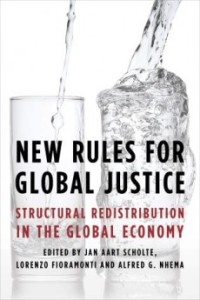
“To solve the urgent interlocking problems of climate change, world poverty, corruption, migration, food insecurity, intellectual property, international finance and money itself, New Rules for Global Justice are desperately needed. This book, produced by eminent researchers from four continents, gives us a brilliant, insightful and timely start”, Richard Wilkinson and Kate Pickett, bestselling authors of The Spirit Level: Why Equality Is Better for Everyone
“Over the last decades corporate globalization has imposed an economic system that has produced a world for the 1%, increased global injustice, and pushed the planet and societies to the brink. The ideas and proposals presented in New Rules for Global Justice have become an ecological and political imperative”, Vandana Shiva, recipient of the Alternative Nobel Prize – Right Livelihood Award
“In the current darkness of global injustice, a glimmer of light and hope comes from a renewed globalized discussion of pathways to justice. In its global distribution of authors as well as in its wide range of topics and strategies, this book is an extraordinary contribution to the worldwide discussion of change”, Göran Therborn, Professor of Sociology, University of Cambridge
“Global redistribution should be an urgent priority. By showing us how it can be accomplished, this much-needed book should hasten that day. A compelling roadmap to a just future”, James Gustave Speth, former head of UNDP and Co-chair, Next System Project of the Democracy Collaborative
HOW NUMBERS RULE THE WORLD: The Use and Abuse of Statistics in Global Politics (Zed Books, 2014)
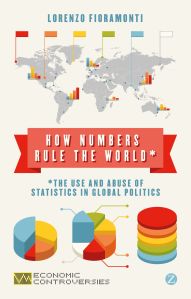 “This book is a thoughtful political economic analysis of how our fates have come to be determined by a few numbers, and how these numbers have been shaped by a few people.” – Raj Patel, best-selling author of Stuffed and Starved, and The Value of Nothing
“This book is a thoughtful political economic analysis of how our fates have come to be determined by a few numbers, and how these numbers have been shaped by a few people.” – Raj Patel, best-selling author of Stuffed and Starved, and The Value of Nothing
“Timely and original, scholarly without ostentation, often scathing, Lorenzo Fioramonti’s field guide to the prejudices, assumptions, financial interests and ideology that lurk behind the most innocent-seeming numbers equips us to challenge their spurious authority. Faith in numbers has helped to wreck the financial system, masked fraud and criminal activity, allowed the world’s richest people to meddle in the ‘development’ of societies they know nothing about and could lead us to damage our earthly habitat beyond recall.” Susan George, author of Whose Crisis, Whose Future? and President of the Board, Transnational Institute
“Lorenzo Fioramonti has written an urgent and highly accessible book, showing just how over-reliant our governance systems are on misleading numbers, which support market power and blur our understanding of the world. And it is also a better and more compelling read than exactly 95.4% of all other important books!” David Boyle, author of The Tyranny of Numbers
Translated into Korean (2015)
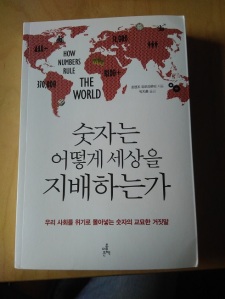
Translated into Chinese (2019)

BUY THE BOOK HERE
GROSS DOMESTIC PROBLEM: The Politics Behind the World’s Most Powerful Number (Zed Books, 2013)
Gross Domestic Product (GDP) is arguably the most well-known statistic in the contemporary world, and certainly amongst the most powerful. It drives government policy and sets priorities in a variety of vital social fields – from schooling to healthcare. Yet for perhaps the first time since it was invented in the 1930s, this popular icon of economic growth has come to be regarded by many as a ‘problem’. After all, does our quality of life really improve when our economy grows 2 or 3%? Can we continue to sacrifice the environment to safeguard a vision of the world based on the illusion of infinite economic growth?
In Gross Domestic Problem, Lorenzo Fioramonti takes apart the ‘content’ of GDP – what it measures, what it doesn’t and why – and reveals the powerful political interests that have allowed it to dominate today’s economies. In doing so, he demonstrates just how little relevance GDP has to moral principles such as equity, social justice and redistribution, and shows that an alternative is possible, as evinced by the ‘de-growth’ movement and initiatives such as transition towns.
A startling insight into the politics of a number that has come to dominate our everyday lives.
BUY THE BOOK HERE
Click on the screen below to view the booktrailer
Read a book review by Red Pepper magazine: http://www.redpepper.org.uk/gdp-a-not-so-magic-number/
Praise for Gross Domestic Problem
‘As the planet’s ecosystems and local and national economies collapse, going beyond GDP has become a survival imperative. This is the challenge that Fioramonti has taken up in Gross Domestic Problem: The Politics Behind the World’s Most Powerful Number. Further to tracing the short history of GDP, its roots in mobilising for the war, its artificial construction of wealth erasing nature’s contributions and the wealth created by women and all who work for sustenance, the author introduces us to new initiatives, like those of Bhutan, to measure real wealth as well being and happiness.’ – Vandana Shiva, Navdanya (Research Foundation for Science Technology & Ecology)
‘This book is long overdue. Finally, the political interests behind the GDP mantra have been unveiled, forcing us to rethink mainstream economic views and build a more just and sustainable world. It is indeed the most important struggle of our generation.’ – Kumi Naidoo, Greenpeace International Executive Director
‘Fioramonti shows convincingly that ever since its invention the measurement of GDP has rested on highly controversial ideological assumptions. GDP is thus an ideological weapon, not a neutral scientific measure. There is no hope of escaping the current crisis until we recognise the role that obssession with GDP has played in causing it.’ – Jonathan Aldred, Director of Studies in Economics, Emmanuel College, University of Cambridge
‘Going beyond the flaws of using Gross Domestic Product (GDP) which many have highlighted, this inspiring book by Fioramonti provides a much needed history of the development of GDP and an analysis of how it has been (mis)used to define progress. Seeing the problem of government policy priorities having been led astray, Fioramonti provides a thorough and up-to-date picture of the various initiatives that have emerged to demote the role of GDP. Not naive in its recognition of the challenges faced by this endeavour, Gross Domestic Problem is an excellent read for academics and activists alike.’ – Saamah Abdallah, The New Economics Foundation
‘Never before has one single measure shaped our world so profoundly. Incisively illuminating the politics behind its numbers, Fioramonti has reinforced the urgent need to reset our coded image of ourselves’ – Dr Simon Zadek, Senior Fellow, Global Green Growth Institute, author of `The Civil Corporation`
‘Since WWII, we’ve been willing to sell our grandchildren’s tomorrow for a bump in GDP today. Fioramonti reveals the insanity that rules economic thinking by giving us a simple, clear account of “the world’s most powerful number,” while also surveying the superior alternatives.’ – Richard Heinberg, author of ‘The End of Growth: Adapting to Our New Economic Reality’
‘Gross Domestic Problem tells the amazing story of how GDP became the king of all measurements, against the warnings of its very architects. In brilliantly excavating the history of national income measurement, the Depression-era birth of GDP and its politicization in the Cold War, and the rich body of work behind today’s global movement to transform national accounting systems, Fioramonti illuminates the politics of GDP like no one else has. This is a singular contribution on a vitally important subject.’ – Lew Daly, Senior Fellow, Demos (USA), author of ‘Beyond GDP: New Measures for a New Economy’
‘GDP numbers are quoted all the time, but the power of GDP relies on the fact that hardly anyone knows what it means. As Fioramonti shows in this indispensable guide, there are at least three things wrong with Gross Domestic Product: it’s gross, it’s domestic and it’s a product. That is, the GDP number takes no account of the depletion of capital goods or natural resources, treats income accruing to foreign investors as a measure of national success and focuses on the means of economic activity, production, rather than the ends. Gross Domestic Problem explains why GDP is so misleading, and gives a readable history of this most powerful and mysterious of numbers.’ – John Quiggin, University of Queensland
Translated into Chinese (2014)
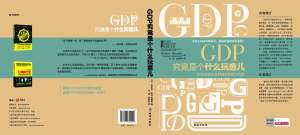
Translated into Korean (2016)
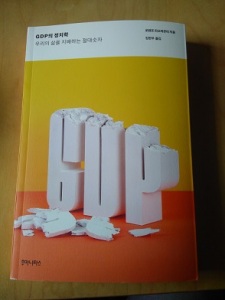
Translated into Italian (Edizioni, L’Asino D’Oro, 2017)
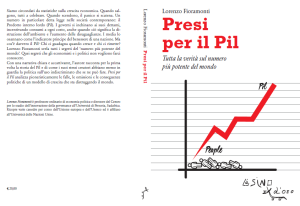
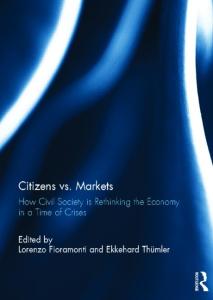
CIVIL SOCIETY AND WORLD REGIONS: How Citizens Are Shaping Regional Governance in Times of Crisis (Rowman & Littlefield, 2014)
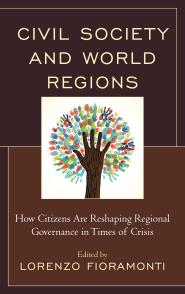
REGIONS AND CRISES: New Challenges for Contemporary Regionalisms (Palgrave, 2012)
‘Crises have been part of the process of supra-national regional integration – starting with the one in Europe. Will the contemporary economic-financial crisis prove to be “good” or “bad” for the regionalisms of the world? Will crises compel regions to adapt by increasing or decreasing their mutual commitments? This book is a path-breaking effort to answer these crucial questions with regard to Europe, Africa, South America and East Asia.’ – Philippe C. Schmitter, European University Institute & Central European University
‘Like no one else before, this outstanding book brings together two of the most important traits of the 21st century: crises and regionalism. Moreover it manages to bridge the unfortunate divide between European integration studies and comparative regionalism. Simply a ‘must read’ for anyone who wants to understand contemporary world affairs.’ – Fredrik Söderbaum, School of Global Studies, University of Goteborg, Sweden
‘This book provides an innovative perspective on regional integration and shows how crises can open up new spaces for action. It provides invaluable insights on the future of Europe and for students of regionalism across the globe.’ – Martin Holland, National Centre for Research on Europe, University of Canterbury, New Zealand
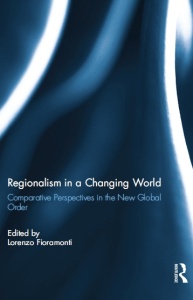

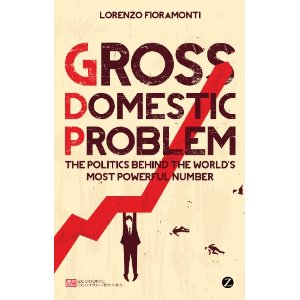
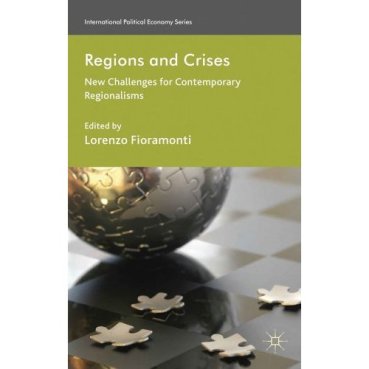
I enjoyed your talk at the book launch tonight!
Thanks!
Good day Lorenzo,
I would like to purchase 7 copies of your book ‘Wellbeing Economy’ to give as gifts, however I would like to have them each signed by yourself and addressed to each person. How would I go about organising this?
Regards
Ornella
oderose@gualaclosures.co.za
Hi Lorenzo
I am interested in designing your website.
Get in touch with me at Paul@imediasolutions.co.za
Regards
Paul
Lorenzo, our friend Hunter Lovins has pointed me to your great work. We are holding the first-ever ReGen18.com on May 1-4 in San Francisco. If you happen to be in the area, please let us know? In any case, I would like to keep up a dialogue. You can reach me at marc@greenworld.org